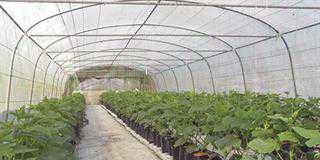
The use of indigenous plants such as rooibos, buchu and hoodia have for centuries been used by Southern African people, including the Khoikhoi and San, to increase their health and well-being.
In recent years, the traditional, medicinal, and other beneficial uses of these plants have increasingly been adopted as part of a healthy lifestyle.
A modern addition to these indigenous natural remedies is an extract, Zembrin, made from the plant Sceletium tortuosum, also known colloquially as Kanna or Kougoed. It is a type of succulent, endemic to parts of the Karoo and Namaqualand.
Discovering Zembrin
In 1986, South African medical practitioner, botanist and ethnopharmacologist Dr Nigel Gericke, who was in Australia at the time, came across Sceletium tortuosum while reading a book on psychoactive plants. He recalls a brief mention of an obscure SA plant called Sceletium tortuosum; little was known about its effects. He was determined to investigate it on his return home.
As a result, Nigel has spent the past 20 years investigating the scientific, medicinal and commercial potential of the plant, ultimately leading to the development of the active plant extract Zembrin.
This extract is now used internationally in natural, botanical supplements designed to relieve stress, reduce anxiety and enhance mood. In June last year, Nigel received the Best New Product award from the Indigenous Plant Use Forum for his work with Sceletium tortuosum.
Commercialising the plant
“To make this initiative commercially viable and get international businesses interested in marketing the product, we’ve had to demonstrate that we are able to grow large volumes of the raw material on an ongoing commercial basis,” says Nigel.
Deon Hofmeyr, a horticulturalist and director of Zembrin HG&H Pharmaceuticals, led the crop development programme for Sceletium tortuosum, successfully taking the wild plant into large-scale commercial production as a new crop.
In 1999, Du Roi Nursery in Letsetele came on board as a contract grower to help develop the propagation and production protocols for the controlled cultivation of the plant.
The selected plants are now being grown commercially under irrigation in two areas, both under shade netting and out in the open.
Significant opportunities
The market for central nervous system pharmaceuticals is enormous, says Nigel. “In the USA alone, there are an estimated 21 million adults who suffer from some kind of mood disorder. In 2009, anti-depressants were prescribed about 250 million times, yet the natural or botanical mood enhancer market share is only 2%.
“There’s clearly a major opportunity for an evidence-based botanical medicine.”
Email Dr Nigel Gericke at [email protected].













